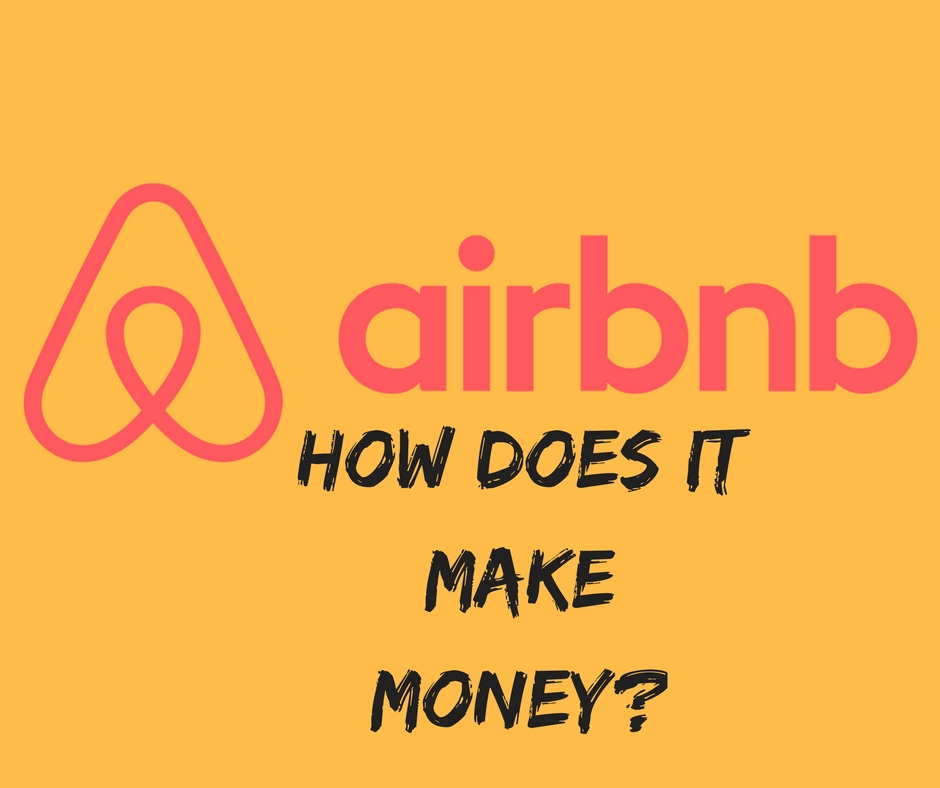How does Airbnb earn?
- 26 January 2018 | 1499 Views | By Mint2Save

Airbnb has revolutionized the online marketplace for hotels and holiday rentals. Encompassing stays for every budget, this bread and breakfast service has grown into a mammoth in real quick time. It certainly has not been an easy journey, where most things depend on the intangible:
- The Internet,
- Trust between owner and customer, and
- Reviews by users.
Out of these three, trust is the most important part that has made Airbnb reach and stay at the pinnacle of success.
In their last fundraising, Airbnb was valued at $31 B. This makes it pretty clear that they have a good revenue system in place. But being a distributed service provider, how does it generate enough revenue? After all, it has international operations, multiple currencies to deal with.
In this article, we are going to explore the revenue generation model for Airbnb. This article read is useful when you are a Airbnb guest or a host or are intending to explore on the earning methods which have rapidly caught attention.
What is Airbnb?
Today’s tech savvy generation has at some point definitely tried booking a place on Airbnb, be it for a vacation or a work trip. If we go by words, then Airbnb is the largest accommodation providing chain in this world, founded in 2008 and based in San Francisco, California. It technically does not own any hotels, but is surprisingly present in over 65,000 cities and growing! It allows its users to book accommodation around the globe, be it an apartment for a night, a castle for a week, or a villa for a month. So how does this work? Well, if we go by what Airbnb does, then it would be better to say it as an “Online Marketplace” or a platform, where people can come and list their places/lodgings, guests/users can book online, stay and the people listing the service can act as hosts for them. Or we can say it is a broker or a transaction facilitator between the guests and the hosts.
The key partners for Airbnb include:
- The Hosts – People leasing out their properties, be it a condo or a villa.
- The Guests – The traveller in need – be it a businessman or someone on holiday i.e., the person booking for his/her stay.
- Real Estate Agencies – Excess properties can be leased out using this platform.
- IT Experts – Website Designers, Database Managers and others who can refine the online process.
- Photographers provided by Airbnb –To make the spaces appealing to guests who are browsing online. This service may be provided free of cost to the hosts.
- Governments – For tourist attractions and outdoor ad spaces
- Payment Processing Channels – Visa, Paypal and others for the revenue flow
- Lifestyle Media Companies – Endorsing Airbnb stays for the travelers.

All these partners, powered with the amazing ability of social media have certainly created a certain storm of perennial popularity and demand. Facebook reviews, direct access to communicating with the property owner/manager, travelogues etc., have made Airbnb not only a transparent business place, but also a safe harbour when travelling alone or to new places.
How does it all work?
Airbnb can be accessed via either the Airbnb websites or simply via mobile applications. Airbnb is a just an aggregator or a platform which provides you with all the listings, just like Uber, which acts as a platform provides you with all the cabs near you registered in their system.
Registration and Creation of Account are free, however, for every listing, the host has to publish various details like pricing, photos, location, amenities, available dates etc. For every successful booking through Airbnb, they charge the host anywhere from 6-12% of the price listed by the host. This is the main source of revenue for the company and that’s how aggregator’s earn, through charging commission, from both the seller and the buyer.
What is an Aggregator business model?
Aggregator Business Model is a network model where the firm collects the information about particular good/service providers, make these providers their partners, and sell their services under its own brand. Essentially acting as a Platform for customers with tumultuous variety as it focuses only on one product or service.
This gives the company a leverage to charge a premium or we can say a fee from both the parties, which are the seller and buyer.
What are the major sources of revenue for Airbnb ?
- Largely, Airbnb earns commission from hosts which can range anywhere between 3-5% of the total booking amount.
- The major source of revenue is from the customers or the guests, depending on the size of the reservation, guests are required to pay a 6-12% non-refundable service fee of the total booking amount on each completed transaction.
- Hosts can also offer excursions and other activities to the guests for an additional charge, of which Airbnb takes 20% as a commission.
- A Payment processing fee is also charged from the hosts or the sellers, which adds to its revenue.
- Lately, Airbnb has commenced a new product named “airbnbmag”, which is a subscription-based Travel Magazine, giving deep insights about a specific city and its unique Airbnb listings there.
- Another source of revenue for Airbnb is the interest it earns on the booking fee it holds before it is passed on to the hosts. Airbnb holds the booking fee until 24 hours after check-in of the guests and then transfer the money to the host. For example, guests who booked for their travel 2-3 months in advance and Airbnb collected that money. But the hosts don’t receive this money in advance; they get it only after 24 hours after check in into the property of the host, so Airbnb is holding that money for 2-3 months and making interest on it.
Due to the huge amount of bookings, Airbnb’s revenue continues to grow while only charging a minimal service fee.
Summary
Airbnb is already a multi billion-dollar company and will keep growing. It is the world’s largest accommodation provider, while it owns no property. It is more than an affordable travelling accommodation provider as it provides a friendlier, personalized and localized travel experience as compared to a hotel. The local hosts provide the customer an experience that goes beyond the standard tourist package. The locals are likely to know more about their environment than hotel staff – and one can associate and link seamlessly in a setting that is more intimate than the standard customer. The Airbnb staff is also known for their prompt helpfulness and hospitality, adding to the comfort and dissolving borders when it comes to staying with strangers.
A key constituent of the online marketplace is the review system that helps the consumer make choices. Airbnb has a particularly detailed system in place for this, using numerous criteria like accuracy, cleanliness, check in, communication, location and value. Reviews are also published only after the guests and the property owners have assessed each other to enable better transparency. Reviews are to be submitted within 14 days of the experience – thus, reviews are fresh, current and updated.









